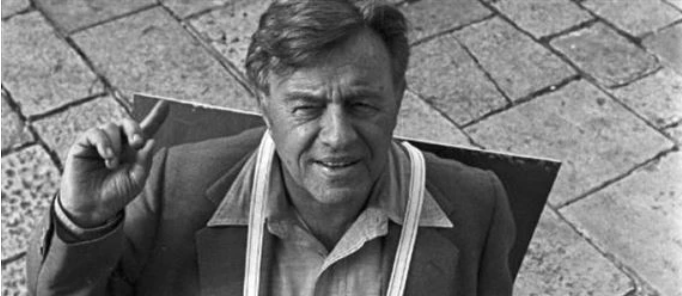The Persistence of Memory
September 4, 2023
Do you ever read something, maybe while searching for something else, and you find it sticks with you? You may not fully remember it, or where you read it, but you find it resonates with you and keeps coming back?
Here’s what I read and recalled:
“The Mayor of Jerusalem regularly had Jews, Muslims and Christian leaders in his office, pigeonholing him on issues of interest to their religion, wanting to advance their issues over those of the others.
“The Mayor said to them “Would you rather I solve your religious issues, or fix the sewers? Pick up the trash?”
Maybe I read this when I worked for the Zarrow Family Foundation. I honestly couldn’t remember, and after YEARS I started to think: Did I make this up? Did I write a parable in my head? From time to time, I would search for “Mayor of Jerusalem” in hopes that the true source of this would surface, but Google’s search algorithm would show me news instead.
I’ve thought about this A LOT of the years, as the model for being a public servant. Don’t focus on advancing your personal or political causes. Make sure the trains run on time, the trash gets picked up, and students get educated. That last bit here in Oklahoma seems to be a problem for our current Oklahoma State Superintendent of Public Instruction.
But finally, over the Labor Day weekend I found Teddy Kollek, the Hungarian-born, Viennese-raised Jewish Mayor of Jerusalem for 25 years. A gruff, yet likeable man who raised Jerusalem from a historic divided backwater to a real city, with gardens, parks, museums, and philanthropic foundations. He was a tireless servant of the city of Jerusalem, working from dawn to after midnight, publishing his home phone number in the phone book, and seeking to address complaints from Arabs, Jews, and Christians alike.
In a city where some groups believe they have sole rights to expel everyone else, Teddy Kollek wasn’t some sort of moon-eyed hippie believer, but a pragmatist who wanted everyone to be tolerant. The philosopher Rabbi David Hartman said: ”Jerusalem is a city that aspires to fanaticism. This city is messianism, it’s revenge, it’s the music of eternity, it’s the city of pilgrims and dreams. You get away from reality and come here, you get away from reality and walk where Jesus walked, or King David. And then along comes Teddy, who says, ‘Look, I’ll fix your sewers if you knock off the sermons.’ He is the epitome of Machiavellian reality in a city which denies the whole notion of reality.”
This sounds like what I read, whenever, all those years ago.
But things have changed. The NYT article below talks about how the black-hatted Ultra-Orthodox Jews (Haredi), who don’t even recognize the Jewish State, are positioning themselves as the only inheritors of the place, at the expense of everyone else. In fact, in the years since the New York Times article the numbers of the Ultra-Orthodox have increased in the city to over 25% and will potentially increase to over a third of the entire country by 2062.
Teddy Kollek and his life-long dedication – The Jerusalem Post (jpost.com)
and
TEDDY KOLLEK’S JERUSALEM – The New York Times (nytimes.com)
Which makes me think: America now has that problem. A significant number of us have turned to fanaticism over democracy.
The Trumpist wing that has infected the Republican party has created a Zero-sum condition where one can only win when someone else loses. So judges don’t get confirmed, roads and sewers don’t get maintained.
As George Washington said in his Farewell Address:
“However [political parties] may now and then answer popular ends, they are likely in the course of time and things, to become potent engines, by which cunning, ambitious, and unprincipled men will be enabled to subvert the power of the people and to usurp for themselves the reins of government, destroying afterwards the very engines which have lifted them to unjust dominion.”
When I was growing up, the newer modern cities had City Managers — professional leaders who studied the craft of running municipalities. Older cities still had Mayors, but they were becoming more figurehead headers — political heads who would stir things up, but you could rest assured that city services would continue. Now that trend has reversed, as political parties have turned their eyes to yet another venue for power and increased their hold over people’s minds. We now have stronger and stronger Mayors, which may or may not address the important issues.
The more I think about it, we either need to alleviate political parties, or allow more of them — dilute their power by making the winning percentages less than 51%.
Like it or not, 247 years into our Great Experiment, we are a pluralistic society now. We have not done a great job of teaching our citizens tolerance, and by continuing to highlight our differences and divisions, it’s not going to go well.
Before Ronald Reagan ex-appropriated the “Shining City on the Hill” metaphor, we should remember the words that preceded it, by John Winthrop in 1630:
“We must uphold a familiar commerce together in all meekness, gentleness, patience and liberality. We must delight in each other; make others’ conditions our own; rejoice together, mourn together, labor and suffer together, always having before our eyes our commission and community in the work, as members of the same body.”
